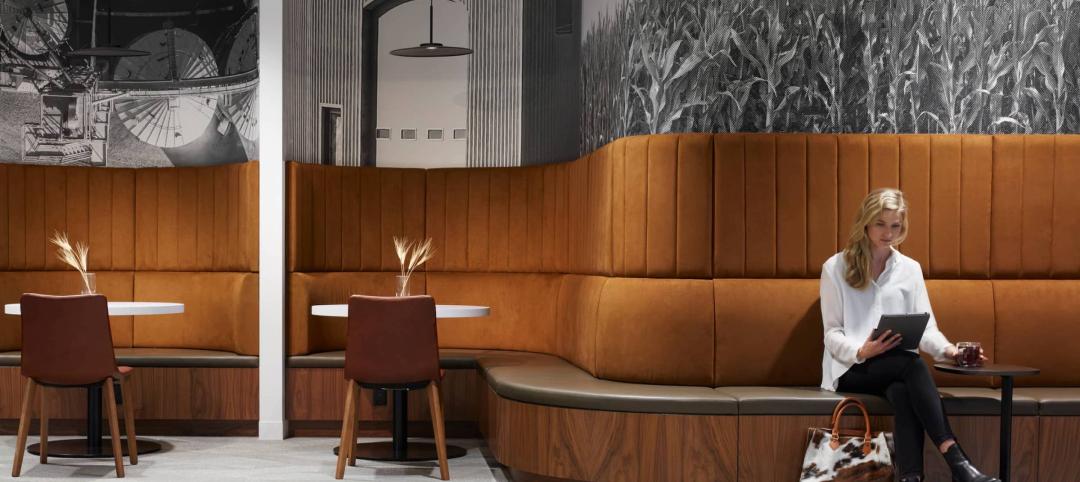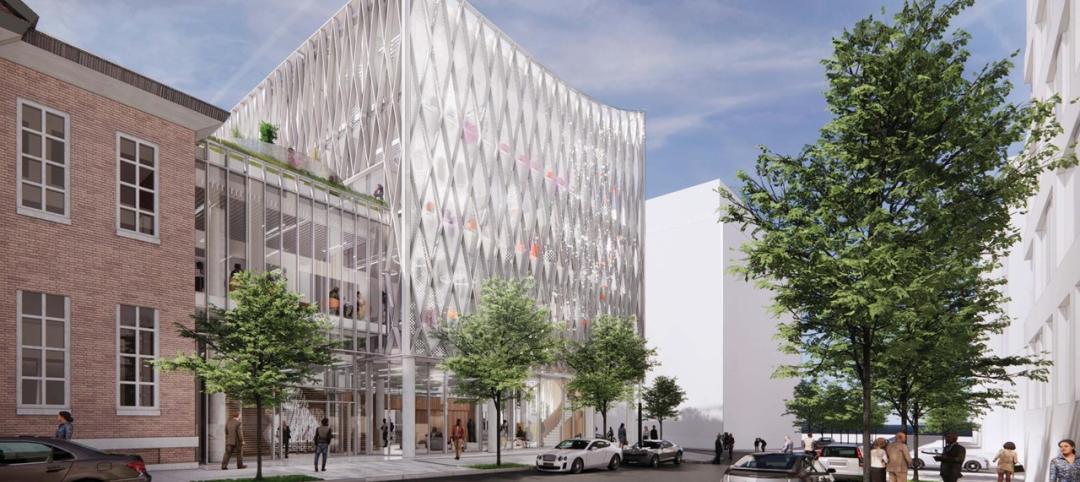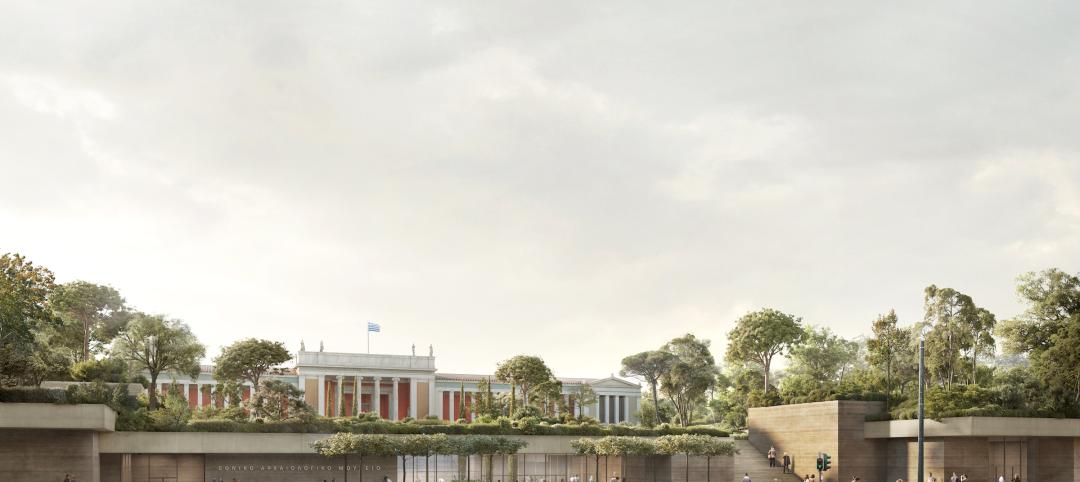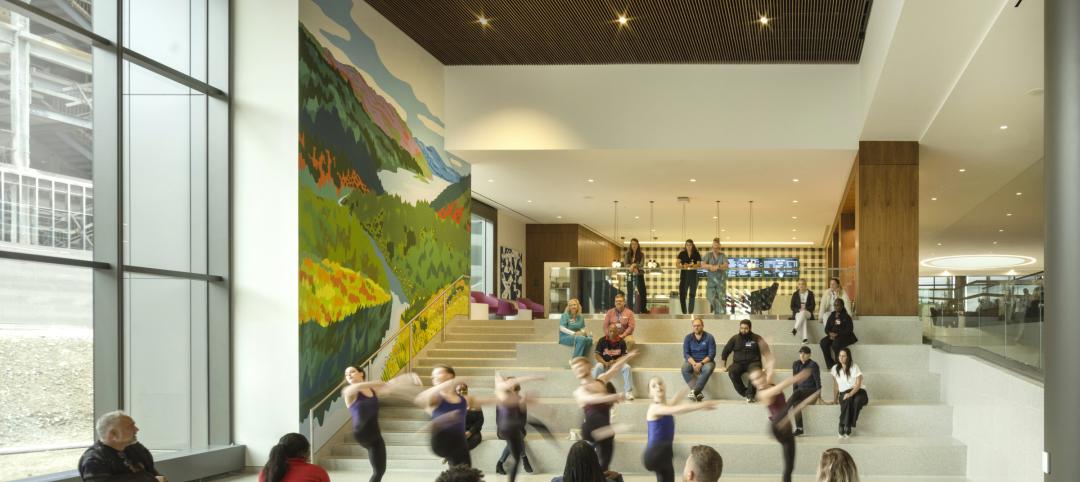Stantec, the global engineering and design firm, bolstered its position geographically and in several business sectors with its acquisition of Denver-based RNL Design, the architectural, interior, and urban design firm.
Terms of the agreement, which is expected to close next month, were not disclosed.
Josh Gould, RNL’s chairman and CEO, tells BD+C that his company decided to put itself up for sale about 18 months ago, and entered into serious discussions with Stantec at the beginning of this year.
“We’ve been autonomous for more than 60 years, so our board didn’t make this decision lightly,” he says. However, the board concluded that RNL couldn’t achieve the kind of market reach it wanted with its existing platform in a consolidating industry “that is changing rapidly,” says Gould.

Josh Gould, RNL Design's chairman and CEO, will become a sector leader in Stantec's Buildings group. Image: Stantec
RNL joins Stantec with 134 employees and offices in Denver, Los Angeles, Phoenix, Washington, D.C., and Abu Dhabi, UAE. But, says Gould, RNL “really didn’t have a lot of coverage in the United States outside of Denver. We have several national and international clients, and they needed broader coverage.”
It gets that with Stantec, whose 22,000 employees are spread over 400-plus locations and six continents. Last year, Stantec, which is based in Edmonton, Alberta, reported $4.3 billion Canadian (US$3.2 billion) in revenue, and C$130.5 million in net income.
Stantec’s business model over the past several decades has been to grow into sectors through acquisition (it’s made over 125 deals). Stantec is active in five sectors: Buildings, from which it generates about 23% of its revenue; Water, which also accounts for 23%, and became a more important part of the company after its March 2016 acquisition of Denver-based MWH Global; Infrastructure (26% of revenue), Energy and Resources (12%), and Environmental Services (16%).
RNL’s management team is staying on with Stantec, and Gould will become its Buildings Sector Leader. Eventually, he will take a leadership role in expanding Stantec’s Civic business.
“RNL has an abundant portfolio in the Civic sector, especially in public transit,” says Leonard Castro, Stantec’s Executive Vice President-Global Buildings Practice. RNL’s notable public transit projects include providing architectural, interior, and sustainable design for the 540,000-square-foot Los Angeles County Metropolitan Transportation Authority (Metro) Division 13 Bus Operations & Maintenance Facility, the first ground-up bus operations and maintenance facility for Metro in 30 years.
Castro says Stantec also saw RNL’s position in Denver and in the Middle East as plusses for the larger’s company’s growth ambitions. “Denver is a strategic market for Stantec, and it’s just a better [location] platform to service our clients” than Edmonton is. He adds that Denver is “exceptional” for its engineering schools.
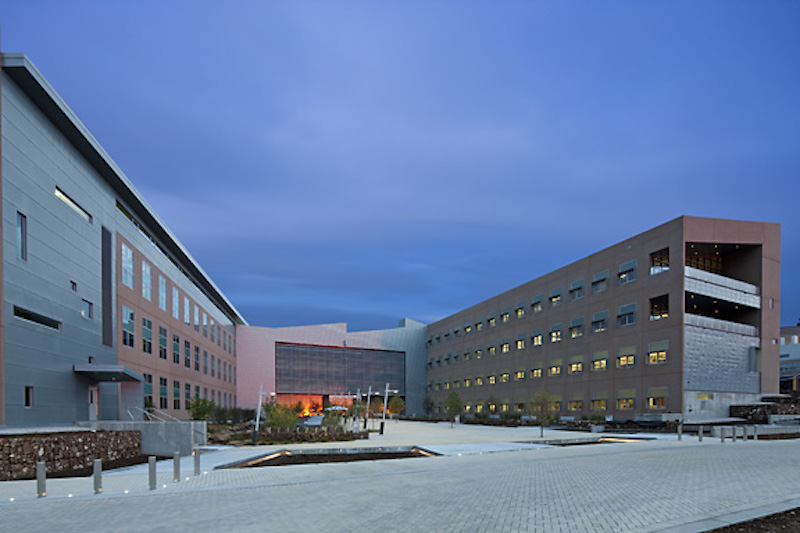
One of RNL's recent projects is the Research Support Faiclity at the National Renewable Energy Lab in Colorado. Image: Courtesy of Stantec
RNL’s strengths in sustainability, resilience, and urban design should solidify Stantec’s position in each, especially given Stantec’s recent “Urban Places” initiative that targets projects related to city living, says Castro. Among RNL’s recent projects is a 190,000-sf net-zero-energy operations building on 36 acres for the Denver Water Board, and the 340,000-sf Research Support Facility at the National Renewable Energy Lab (NREL) in Golden, Colo., for which RNL provided architecture and interior design, site planning, and landscape architecture.
Stantec, says Castro, also believes that having RNL’s architectural design expertise could be a critical advantage in capturing projects for its Water division.
Stantec was MEP engineer on the NREL project, one of a half-dozen that Stantec and RNL had worked on together prior to this acquisition.
New leadership
Coincident to the Stantec-RNL transaction, Stantec announced that its president and CEO of eight years, Bob Gomes, would retire at the end of this year. Gomes, who started working for the company in 1988, oversaw Stantec’s international expansion. Between the first quarter of 2009 and the first quarter of 2017, Stantec also completed nearly 50 acquisitions, and enjoyed a revenue bounce of 229%.
Replacing Gomes, effective January 1, 2018, will be Gord Johnson, a 20-plus-year Stantec vet and, since 2015, Executive Vice President of its Infrastructure business unit.

Gord Johnson (left) will become Stantec's president and CEO on January 1, 2018, replacing Bob Gomes, who has held that position for more than eight years. Image: Stantec
In an interview with the Edmonton Sun following his appointment, Johnson pointed to the company’s diversification strategy as one of the main reasons why it has been able to weather economic shifts in different markets. “We have never been more diversified than we are now,” notes Castro.
Johnson also said Stantec, under his leadership, would look to expand its platform in places where it already has solid footprints, such as the United Kingdom, Australia, and New Zealand.
Related Stories
Architects | Feb 27, 2023
Hord Coplan Macht announces retirement of Founder/CEO Lee Coplan, FAIA, and names successor
Hord Coplan Macht, an award-winning integrated architecture, interior design, landscape architecture, and planning firm, announces the retirement of Founder and Chief Executive Officer Lee Coplan, FAIA. Lee leaves behind a long and celebrated career leading the practice over the last four decades while bringing innovative design strategies and leadership to the architecture and design community.
Libraries | Feb 26, 2023
A $17 million public library in California replaces one that was damaged in a 2010 earthquake
California’s El Centro community, about two hours east of San Diego, recently opened a new $17 million public library. With design by Ferguson Pape Baldwin Architects and engineering services by Latitude 33 Planning & Engineering, the 19,811-sf building replaces the previous library, which was built in the early 1900s, damaged by a 7.2 earthquake that struck Baja California in 2010, and demolished in 2016.
Architects | Feb 24, 2023
7 takeaways from HKS’s yearlong study on brain health in the workplace
Managing distractions, avoiding multitasking, and cognitive training are key to staff wellbeing and productivity, according to a yearlong study of HKS employees in partnership with the University of Texas at Dallas’ Center for BrainHealth.
University Buildings | Feb 23, 2023
Johns Hopkins shares design for new medical campus building named in honor of Henrietta Lacks
In November, Johns Hopkins University and Johns Hopkins Medicine shared the initial design plans for a campus building project named in honor of Henrietta Lacks, the Baltimore County woman whose cells have advanced medicine around the world. Diagnosed with cervical cancer, Lacks, an African-American mother of five, sought treatment at the Johns Hopkins Hospital in the early 1950s. Named HeLa cells, the cell line that began with Lacks has contributed to numerous medical breakthroughs.
Arenas | Feb 23, 2023
Using data to design the sports venue of the future
Former video game developer Abe Stein and HOK's Bill Johnson discuss how to use data to design stadiums and arenas that keep fans engaged and eager to return.
Museums | Feb 22, 2023
David Chipperfield's 'subterranean' design wins competition for National Archaeological Museum in Athens
Berlin-based David Chipperfield Architects was selected as the winner of the design competition for the new National Archaeological Museum in Athens. The project will modernize and expand the original neoclassical museum designed by Ludwig Lange and Ernst Ziller (1866-1874) with new spaces that follow the existing topography of the site. It will add approximately 20,000 sm of space to the existing museum, as well as a rooftop park that will be open to the public.
Multifamily Housing | Feb 21, 2023
Watch: DBA Architects' Bryan Moore talks micro communities and the benefits of walkable neighborhoods
What is a micro-community? Where are they most prevalent? What’s the future for micro communities? These questions (and more) addressed by Bryan Moore, President and CEO of DBA Architects.
Healthcare Facilities | Feb 21, 2023
Cleveland's Glick Center hospital anchors neighborhood revitalization
The newly opened MetroHealth Glick Center in Cleveland, a replacement acute care hospital for MetroHealth, is the centerpiece of a neighborhood revitalization. The eleven-story structure is located within a ‘hospital-in-a-park’ setting that will provide a bucolic space to the community where public green space is lacking. It will connect patients, visitors, and staff to the emotional and physical benefits of nature.
Multifamily Housing | Feb 21, 2023
Multifamily housing investors favoring properties in the Sun Belt
Multifamily housing investors are gravitating toward Sun Belt markets with strong job and population growth, according to new research from Yardi Matrix. Despite a sharp second-half slowdown, last year’s nationwide $187 billion transaction volume was the second-highest annual total ever.
Multifamily Housing | Feb 21, 2023
New multifamily housing and mixed-use buildings in Portland, Ore., must be ready for electric vehicle charging
The Portland, Ore., City Council recently voted unanimously to require all new residential and mixed-use buildings to be ready for electric vehicle charging. The move amends Portland’s zoning laws to require all new multi-dwelling and mixed-use development of five or more units with onsite parking to provide electric vehicle charging infrastructure.





